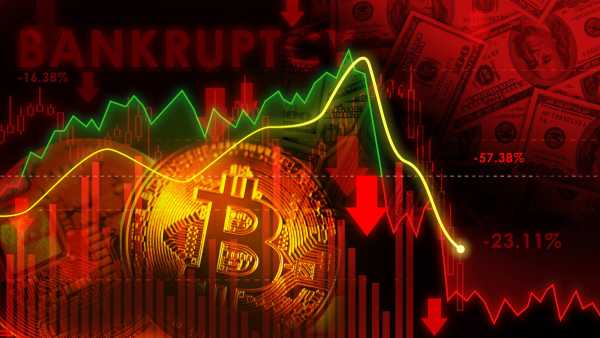Bitcoin in the crosshairs: What threatens the cryptocurrency in 2025

Following the triumph of Bitcoin ETFs, a fundamental regulatory reversal, and the announcement of a national BTC reserve in the US, Bitcoin adoption appears unstoppable. Whether private investors, pension funds, or financial service providers – everyone wants a piece of the Bitcoin pie. Driven by hopes of a rate cut by the Federal Reserve, the BTC price is now climbing above the $112,000 mark again. Does this mean the leading cryptocurrency is poised for another rally to new record highs? Four crypto experts reveal in an interview with BTC-ECHO which risks even die-hard holders should keep an eye on.
“There is a human-level threat to Bitcoin”
Leon Wankum is a real estate expert and Bitcoiner. He sees digital gold as a superior store of value. He warns of conflicts within the community in the coming years:
“Discord and conflict between Bitcoiners are a major threat. So is the repeated attempt to exert control over Bitcoin, which only makes the network more resilient in the long run. I believe this tendency is inherent in humans. That's why the fiat system exists, because people want to control, and with Bitcoin, too, it sometimes seems as if certain individuals want to exert a certain amount of control. But because that doesn't make sense, Bitcoin will go its own way and reach people where it wants to reach them. So, this is a threat that isn't rooted in the Bitcoin network, but rather at the human level.”
“Despite good intentions, regulators could harm Bitcoin adoption”
Igor Neumann is co-founder of Firefish, a BTC-backed lending platform based in Prague. Drawing on his own experience, he criticizes the negative impact of tight regulation on the young Bitcoin ecosystem:
“We're a Bitcoin-focused company, and we think it's great that governments are trying to protect retail investors from rug pulls and all these malicious business practices in the market. At the same time, the bureaucratic burden for companies dealing with cryptocurrencies, and Bitcoin in particular, is very high. So we have to use a lot of our internal resources and redirect them from running the business and developing the product to regulatory tasks.”
Read also

Interview with Firefish founders Igor and Martin Bitcoin hodlers beware: How to get euros without ever selling
“My concern, therefore, is that this ongoing development, despite the good intentions of regulators, could stifle the efforts and achievements of all the creative people in the Bitcoin ecosystem. Smaller companies and startups, in particular, could suffer the negative effects, which could also slow down Bitcoin adoption in general and the spread of new ideas.”
“Bitcoin is not determinism”
Rahim Taghizadegan, an economic philosopher and director of the private educational institution Scholarium, has been involved with Bitcoin for over a decade. He has little faith in the utopian dreams of some BTC enthusiasts:
“Detaching yourself too much from reality and allowing yourself to be blinded – that's a danger if you believe that as a Bitcoiner, you actually don't have to do anything anymore. The assumption that Bitcoin solves all problems and is ultimately inevitable could lead to utopian thinking. The danger with this is always that it becomes less realistic. This means that things can go wrong that you didn't anticipate, and you make wrong decisions. The reaction to this is disappointment, which reveals that you have been deceiving yourself. And this process can be very painful and lead to a phase in which a lot of trust is broken.”
“Quantum computers are not as worrying for BTC as many believe”
Adam Back is CEO of Blockstream and is considered a co-inventor of the Proof-of-Work consensus mechanism, which is why Satoshi cited him in the white paper. He is optimistic about the coming decades:
“Regulatory risks have decreased, and so have technological risks, as testing has improved, bugs are being fixed, and usability has improved. But of course, there are also things that people hear about and worry about, but which I don't think are that worrisome, such as the impact of quantum computers on signature security. That's an area of physics research for a specific type of computer architecture, but we're probably one to three decades away from what would be considered cryptographically relevant.”
Read also

BTC bull run gains momentum Adam Back: Why Bitcoin price could rise by 1,000 percent
“In the United States, there's a standards organization, the National Institute of Standards Technology, that sets international standards for cryptography. Just last November, they established a standard for SLH-DSA, a secure post-quantum signature scheme. With this standard, or other similar standards, Bitcoin can now add an optional spending method, allowing you to spend BTC in the normal way, but also having an alternative way to spend BTC in the distant future. So, when quantum computing eventually becomes a reality, you don't have to move all your coins around, but can simply abandon the old system.”
Recommended Video: Crypto Comeback? Bitcoin & Co. Depend on the US Federal Reserve!




